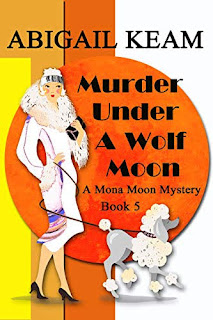A Deadly Promise (A Dr. Margaret Demery Book) by Paula Harmon; Brilliant Protagonist Outshines Convoluted Plot
By Julie Sara Porter
Bookworm Reviews
Spoilers: Sometimes the plot is the best part of a mystery. Sometimes it's the murder victim, the suspect, or even the murderer. Other times, such as in the case with A Deadly Promise, a volume in Paula Harmon’s Dr. Margaret Demery series, it's the lead protagonist. In fact, the protagonist in this book is such a memorable character that she is easily the best part of an at times confusing and convoluted mystery.
In 1914, Amos Chalkley, a young man, dies shortly after pathologist Dr. Margaret Demery gives him directions to the War Office. It seems to be a robbery gone wrong, but Margaret doesn't think so especially after another man, Luther Byrd, dies close by in a similar manner. They both have similar symptoms of some unknown contagion. Margaret and her husband, intelligence operative, Inspector Fox Foxcroft investigate while there is talk of rebellion in Ireland and predictions of a great world war especially after Astro-Hungarian Archduke Franz Ferdinand and his wife, Sophie are assassinated.
Let's start with the good stuff. Dr. Margaret Demery is the type of independent strong willed female detective that occurs often in Historical Mysteries and with good reason. Not only are they often excellent detectives with adept observation skills, empathetic understanding of the people involved, and plucky persistent spirits that pursue justice to the end, but Readers get to see what life was like for women of that era.
In many times, women were suppressed, marginalized, either treated as fragile objects or constant workhorses, and raised to be wives and mothers and that's it. These protagonists often counter these assumptions. Some have careers of their own or are independently wealthy. Even if they take traditional paths and don't earn a living as investigators, they are able to use those skills as amateurs. The approach that these authors take are often intentionally subversive, even Feminist, in how their protagonists are written.
That is especially noticeable with Dr. Margaret Demery. She is a respected pathologist in a time period when female doctors existed but were still held under intense scrutiny and suspicion. Pathology was not looked upon as a suitable field for women as it was believed that women were too fragile and vulnerable to look at and investigate a dead body but Margaret shows that she has the stomach for it. She also works with living patients as well and uses her studies in respiratory illnesses to deduce short and long term complications.
The book explores the rampant misogyny and sexism that is not only personally experienced by Margaret herself but by other women. One of the most intense chapters involves a suffrage march which quickly becomes violent. Even before the violence occurs, the marchers are insulted and mocked by men in the crowd. Some women say that they sneaked out or had to get their husband's permission to march. Even though Margaret is happily married to a man who is empathetic to their cause, her husband, Fox reads her the riot act for being involved in a potentially dangerous situation. His concern is duly noted but he can't resist infantilizing his wife and chastising her like a child incapable of her own agency.
A very important lead that occurs in the book is the institutionalization of Iris Byrd, the wife of Luther one of the murder victims. She was institutionalized by her husband before his death after a domestic dispute. It shows that many people in that time period could have someone committed to a mental hospital for the flimsiest reasons including arguing with family members. Some men, like Luther, and we later learn another character, did this to wives and female relatives as a display of dominance if they felt that they stepped out of line or defied authority. This is the kind of world which Margaret has to navigate through to learn the killer’s identity.
When the book focuses on Margaret's individual investigation in the central murders, the book succeeds. However, it falters when combining it with the larger international picture. There are various characters and situations thrown in that represent different topics of the time such as the Irish Rebellion and WWI, some of which only have a peripheral involvement in the actual murders. There is the reappearance of a former enemy of Fox’s whose involvement with this plot only makes things more confusing. Then there are the obligatory red herrings, false leads, and betrayals which only hinder the investigation and it becomes hard to remember who is who, what their motives were, and what they had to do with the central mystery.
It seems as though Harmon had too many ideas for this volume. Instead of focusing on one specific plot angle, she threw them all in. The results are an overwhelming Mystery which contains far too many subjects to create a streamlined focused mystery.
Sometimes that's a good approach to focus on both the political and personal struggles particularly in an important historical time period like the days before WWI, but they need to be evenly balanced instead of thrown together. It needs to deliver a case where this point and that point lead to a specific conclusion rather than create a situation where it is hard to remember who is who.
A Deadly Promise is not a terrible historical mystery so much as one with great potential especially with its lead character. Margaret is definitely the brightest spot in this book that needs more focus.

